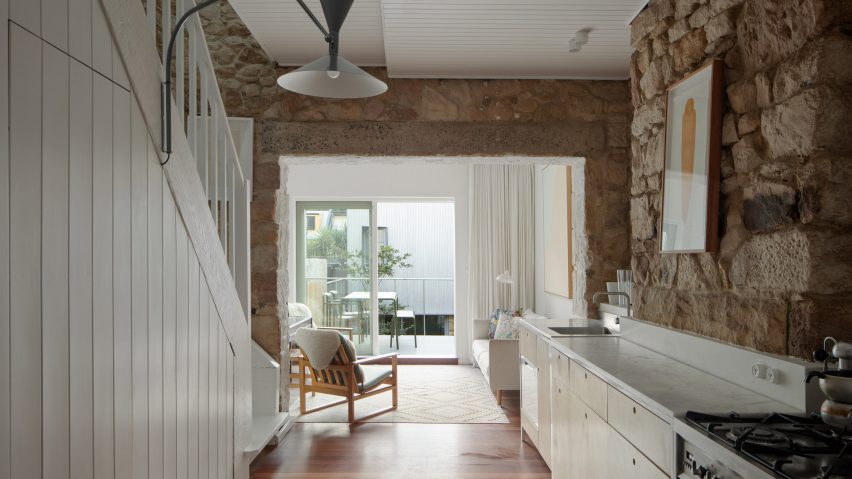
Plant-filled courtyard connects steel and stone houses in Sydney
Australian studio Retallack Thompson has constructed a steel extension for a heritage-listed stone terrace in Sydney and added a second house on the same plot to create a multi-generational family home.
Steel House/Stone House was designed to resemble a tiny village, with the original 1830s terrace house and the new freestanding steel-framed building positioned at either end of the narrow lot, bookending a communal courtyard.
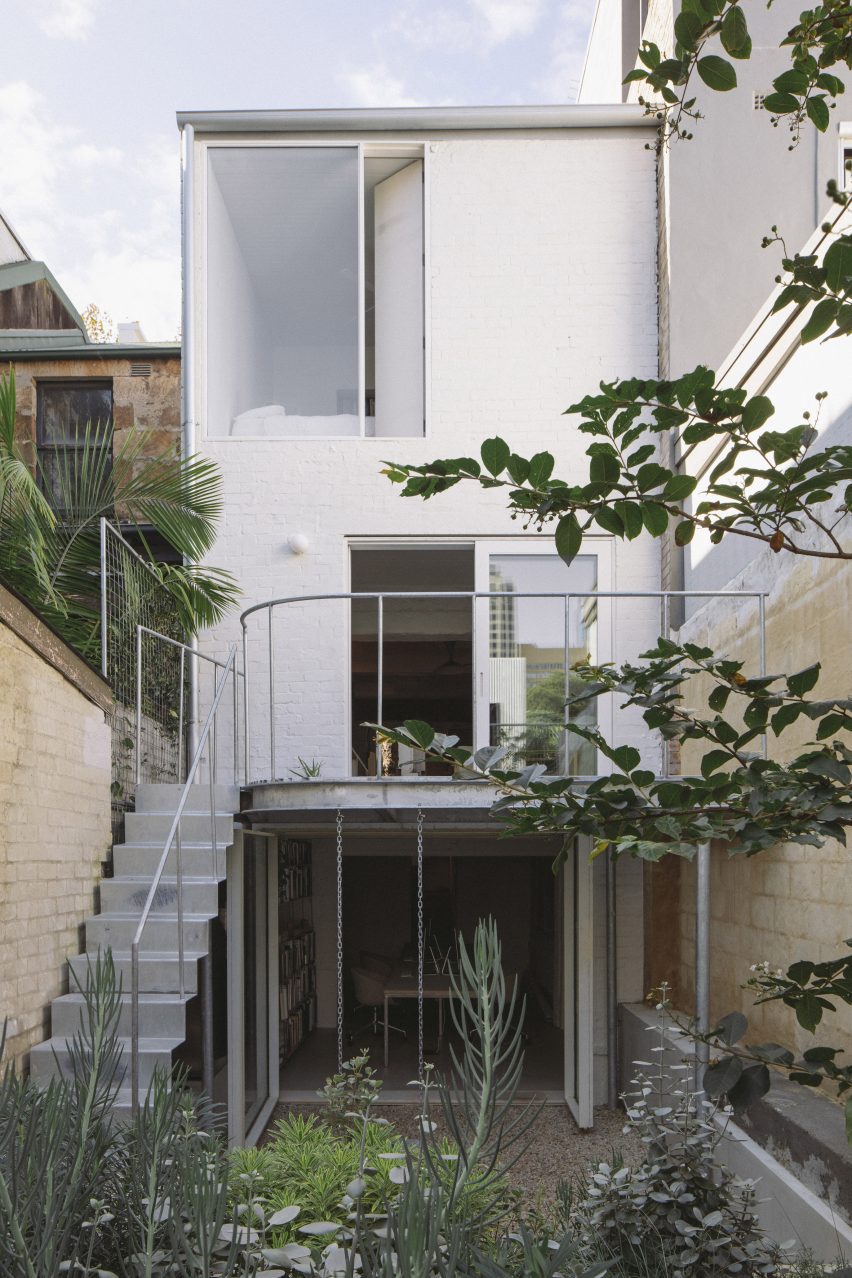
Located in Sydney's Darlinghurst suburb, the extended sandstone building now accommodates a home and studio space for the client while the new build belongs to the client's daughter.
"The goal was to create a home, which could be jointly owned and occupied by two families – father and daughter and their respective spouses and children," Retallack Thompson co-founder Mitchell Thompson told Dezeen.
"We aimed to provide a village-type arrangement to not only house the occupants but also provide spaces for working, retreat, seclusion and shared gathering."
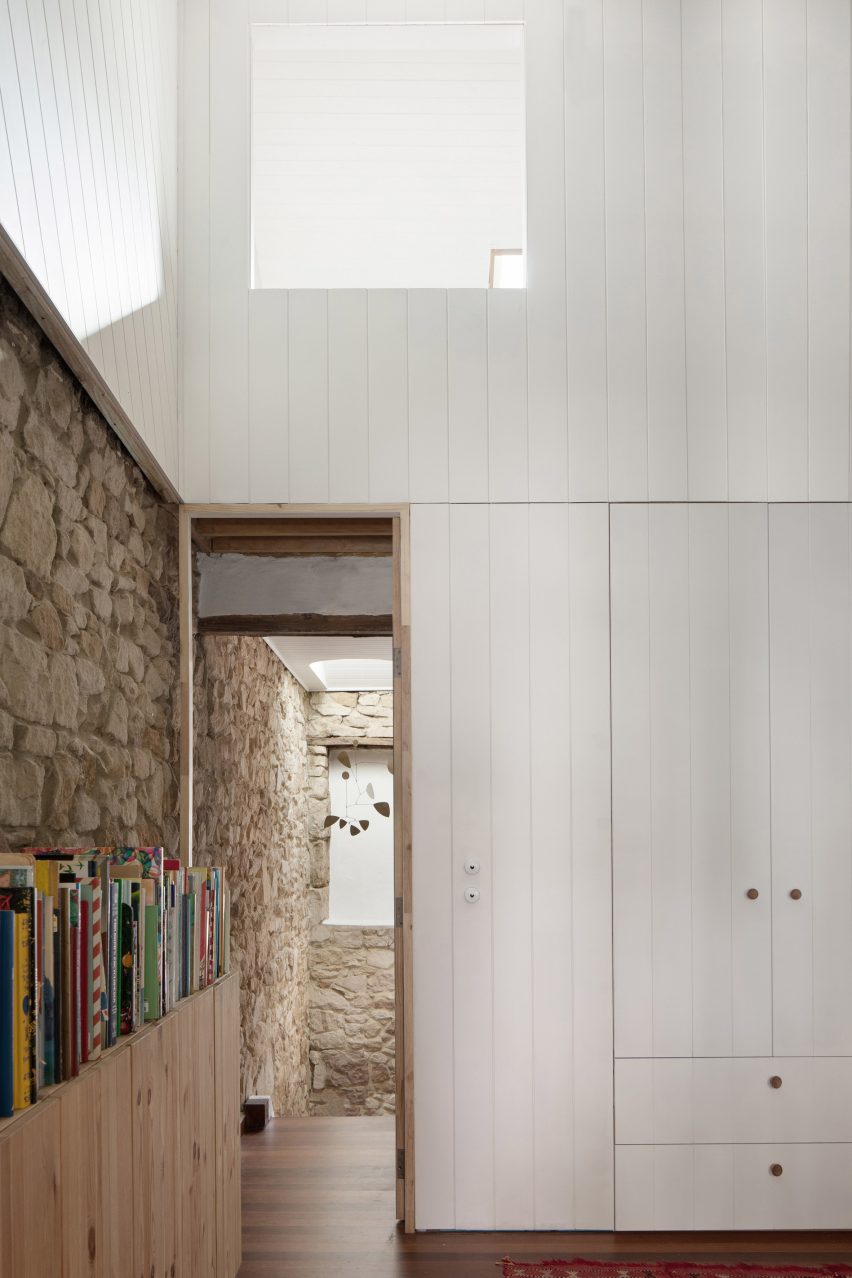
In a nod to the client's career as a steel fabricator, the studio added a minimal steel deck extension to the existing stone house, which was converted to hold both a home and studio space.
Within the existing building, the studio kept the original stone walls intact, adapting the arrangement of the interior spaces to make space for a new bedroom and living space on the first floor, which opens onto a deck overlooking the central garden.
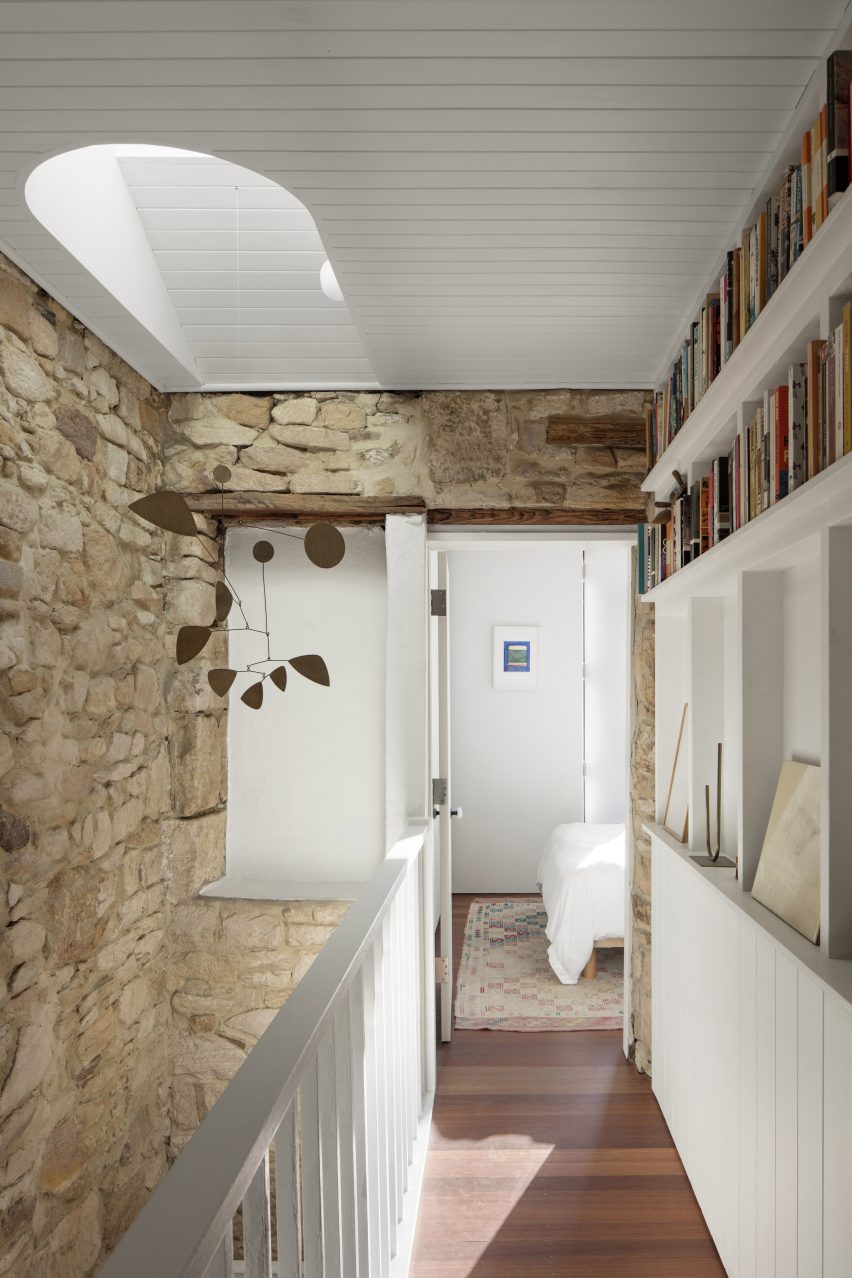
"Typically, the rooms requiring plumbing – the kitchen and bathrooms – are located to the rear of terraces, hindering meaningful interaction with the private outdoor spaces," said the studio.
"These rooms were relocated to the centre of the floorplan, with the disused chimneys serving as risers for the plumbing."
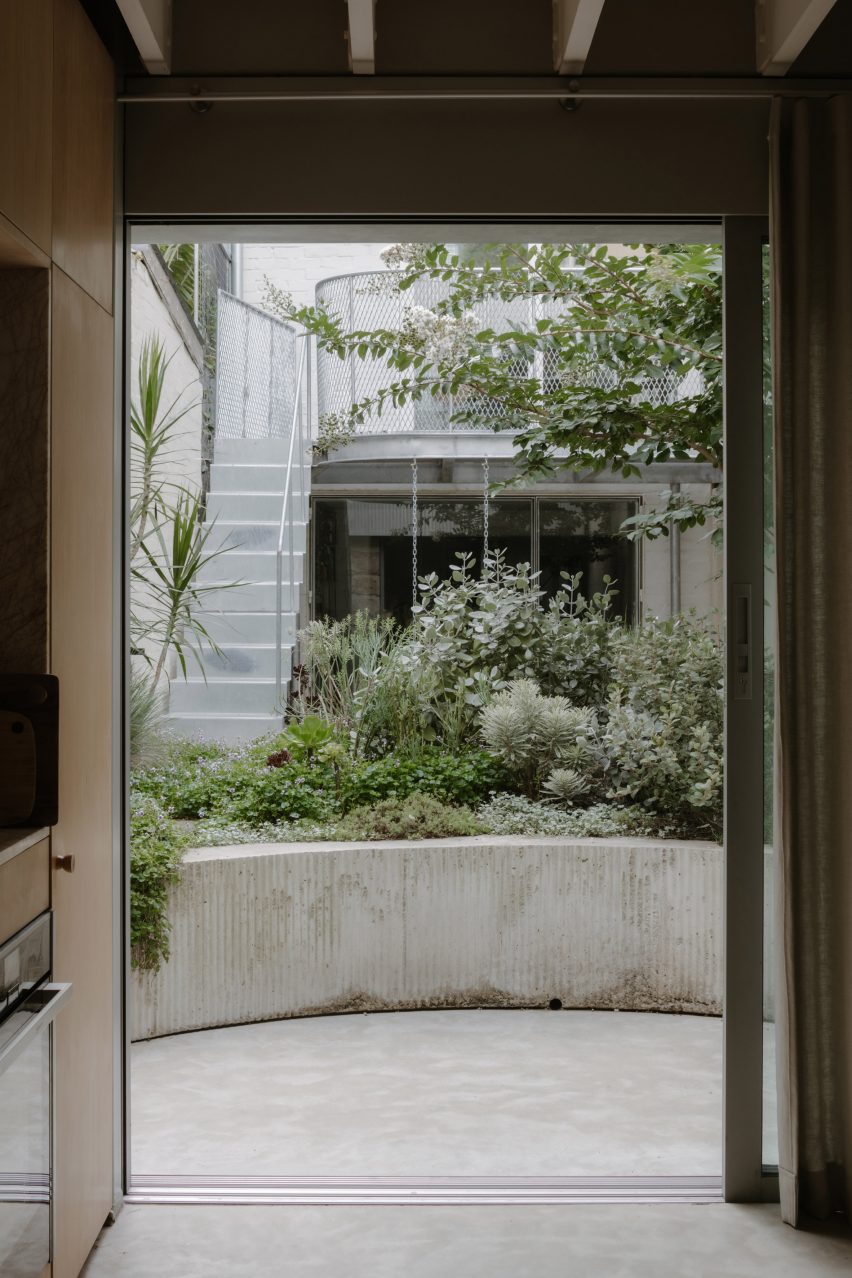
The ground floor of the existing stone house was converted into an office for the client's architecture practice, which features folding glass doors that open onto a gravel-filled, dipped portion of the garden.
A white divider separates the office space from the lowest portion of the family home, which features a bathroom and stairwell.
A thin steel staircase connects the raised level of the garden to the building's first floor, where a balcony coated in thin steel bars provides shelter and holds a swing for the gravelled garden.
Connected to the balcony by double glass doors, an open-plan living space is arranged across the first floor, including a white-walled lounge that opens onto the balcony and connects to a kitchen with exposed stone walls. The upper level features two bedrooms and a bathroom.
At the end of the garden, a steel-framed building with sanded aluminium cladding contains a secondary residence, which is used by the clients' extended family.
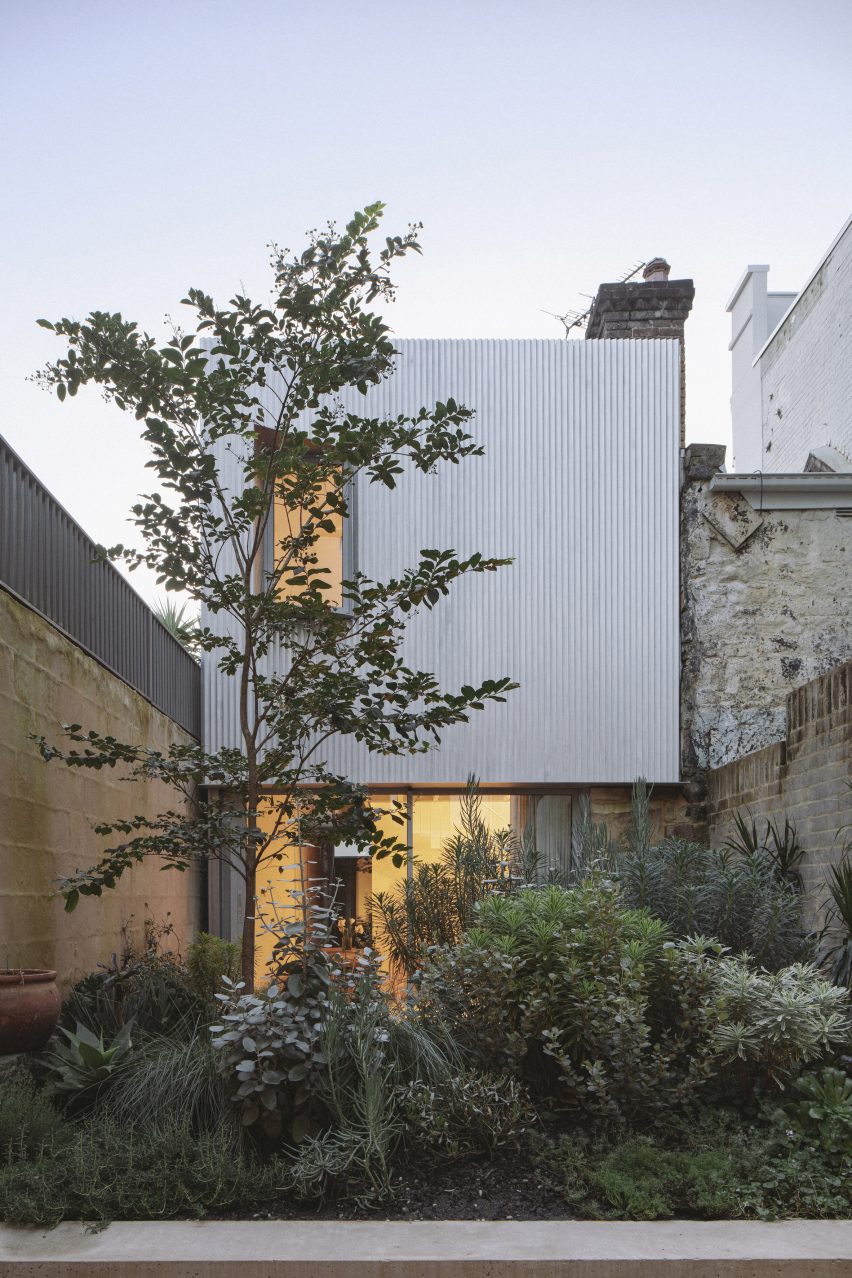
Making full use of the narrow site, the new three-storey volume touches the walls on either end of the site and was created to maximise the space available inside with thin steel walls that contrast the thick existing stone walls.
"Mindful of the narrow width of the site, the materials employed for the newly created dwelling look to maximise the internal volumes and vertical spaces whilst minimising the building envelope," said the studio.
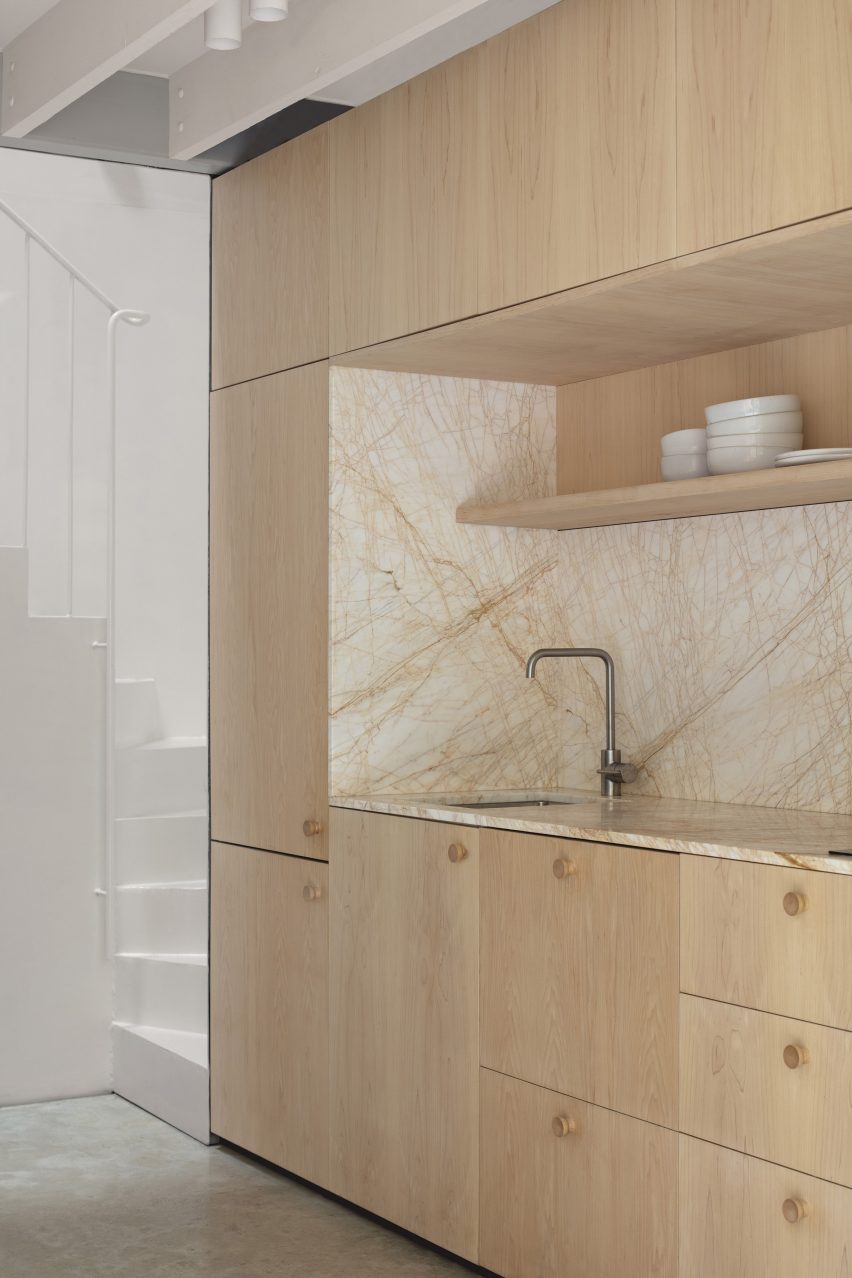
The lowest level of the steel volume holds a garage accessed through sage-green doors at the back of the house. On the other side of the level, a kitchen and dining space finished with modern wooden joinery and white walls and ceilings opens onto a dipped portion of the garden.
Coated in ribbed metal cladding, the upper level of the steel house features a living room as well as a bedroom and bathroom.
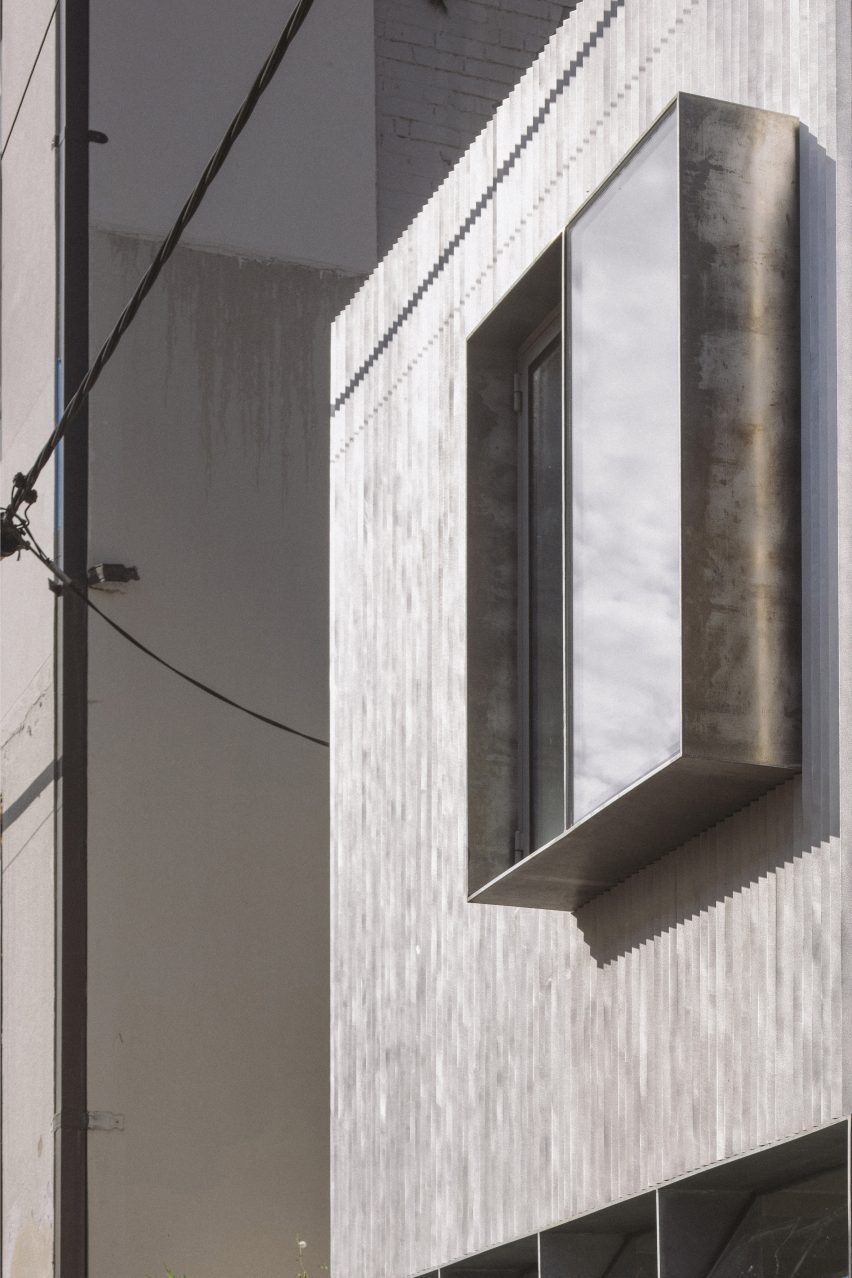
Between the two homes, the garden is split across multiple levels and steps up in the centre where a raised area of planting, bordered by curving stone walls, helps bring nature into the home.
"A deciduous Crepe Myrtle offers shade in summer whilst becoming skeletal in winter to let in as much light as possible," Thompson said. "The ground covers are native evergreens that provide consistent coverage throughout the year."
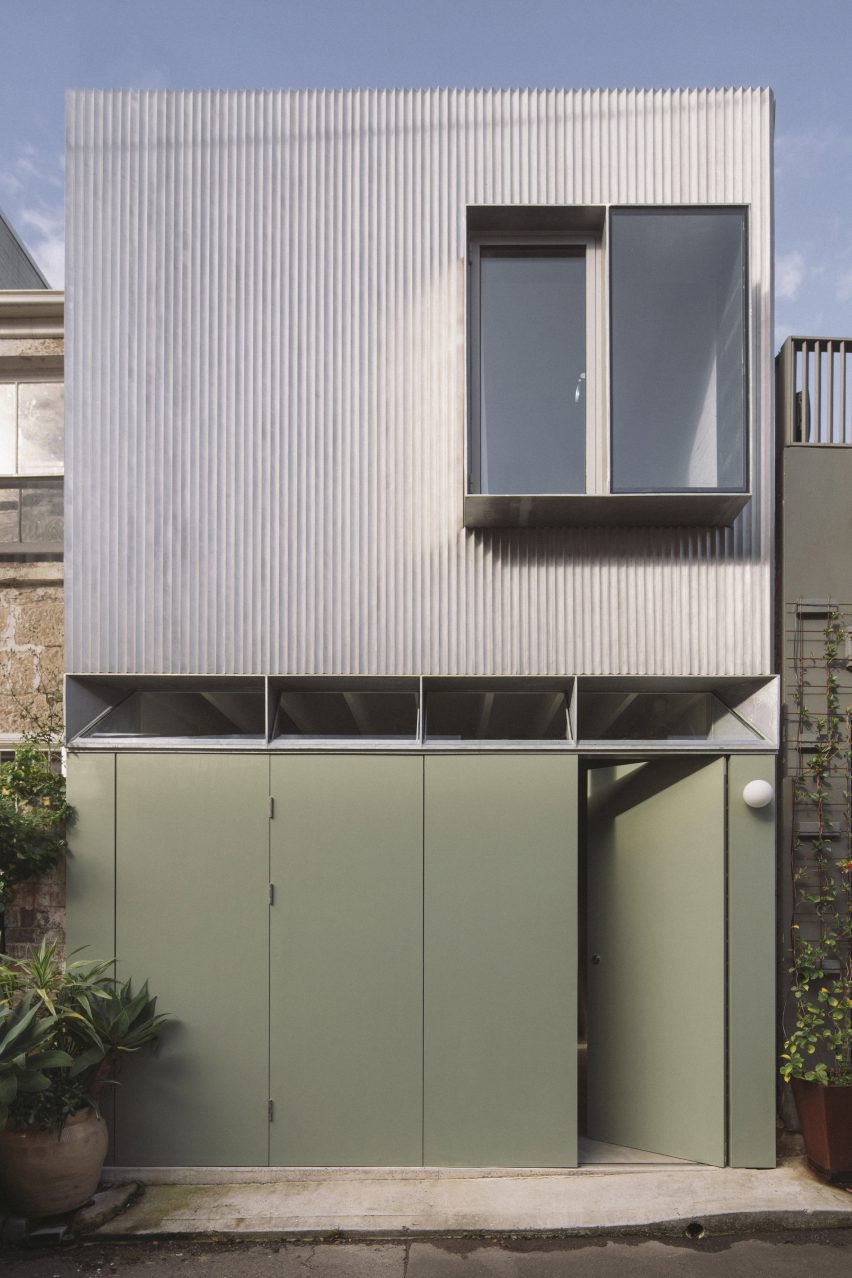
"The landscape is really the fulcrum of the project as it is seen from both houses and from above," he added. "It is also the place where both families come together for conversation, meals and play."
Other Australian homes recently featured on Dezeen include a 20th-century cottage that has been updated with a charred-timber extension and a sensitively modernised 1960s coastal home in Perth.
The photography is by Ben Hosking.